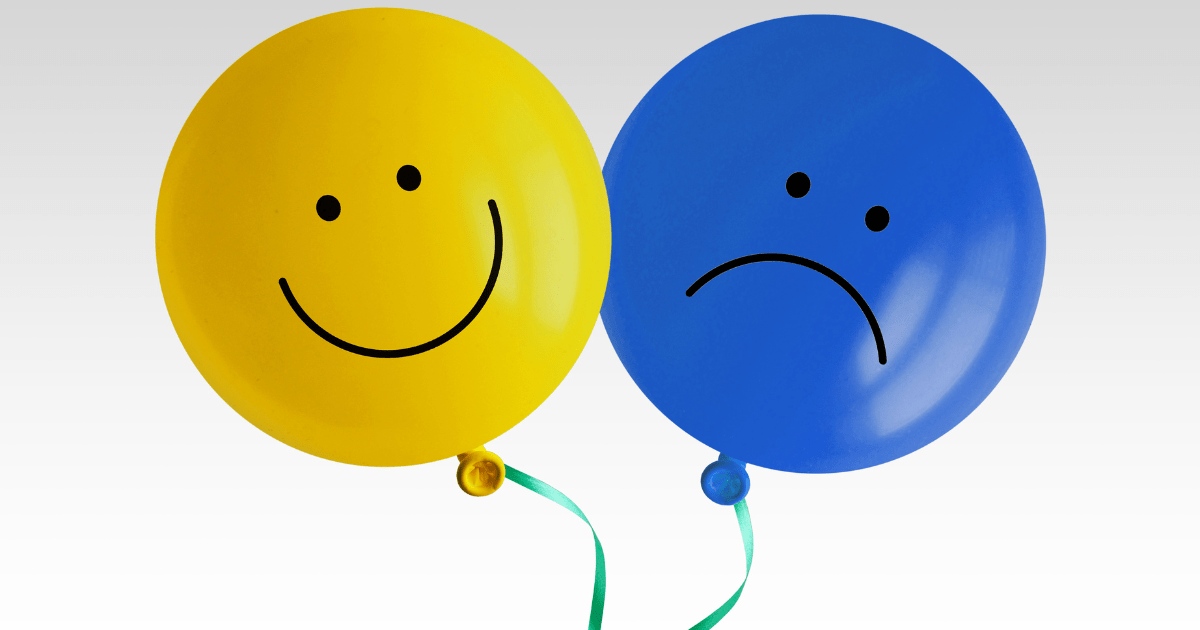
Coping with Challenges: Teaching Mental Health Patients Effective Coping Skills
September 7, 2023
Overcoming Mental Health Challenges: How Our Licensed Counselors Can Guide You
September 7, 2023Living with bipolar disorder can be challenging, but it doesn't have to define your entire existence. Let’s explore effective ways to manage symptoms, find balance, and unlock the hidden potential within ourselves. It's time to take control and embrace the possibilities of living a fulfilling life despite the ups and downs. Below are practical strategies, valuable insights, and inspiring stories that will empower you on this remarkable path towards managing bipolar disorder.
Introduction: What is Bipolar Disorder?
Bipolar disorder is a mental illness that causes extreme shifts in mood, energy, and activity levels. People with bipolar disorder often have periods of mania (or euphoria) followed by periods of depression. These mood swings can be so severe that they interfere with everyday life.
Bipolar disorder is not a single condition, but rather a spectrum of disorders that range from mild to severe. Some people with bipolar disorder only experience occasional episodes of mania or depression, while others may have multiple episodes every year. The severity of symptoms can also vary from person to person.
While there is no cure for bipolar disorder, it is a treatable condition. With proper treatment, most people with bipolar disorder can live healthy and productive lives.
Symptoms of Bipolar Disorder
Bipolar disorder is a mental illness that causes extreme mood swings. The highs, or mania, can last for weeks or even months. During this time, people with bipolar disorder may feel very happy, have a lot of energy, and be more creative than usual. They may also take risks and make impulsive decisions. The lows, or depression, can last for weeks or months. During this time, people with bipolar disorder may feel very sad, have little energy, and have trouble concentrating. Bipolar disorder can also cause psychotic symptoms, such as hallucinations or delusions.
Diagnosing and Treating Bipolar Disorder
Bipolar disorder is a mental illness that causes extreme mood swings. The highs, or mania, can be very exhilarating and make you feel like you can do anything. However, the lows, or depression, can be debilitating and make it hard to get out of bed in the morning. If you think you might have bipolar disorder, it’s important to start treatment so we can give you a proper diagnosis and start you on the road to treatment.
Once you have been diagnosed with bipolar disorder, there are many treatment options available. Medication is often used to stabilize mood swings and help control symptoms. Therapies such as cognitive behavioral therapy (CBT) can teach you how to manage your thoughts and emotions in a more positive way. It’s important to work with your doctor to find the right treatment plan for you.
Living with bipolar disorder can be challenging, but there are things you can do to manage your symptoms and improve your quality of life. Sticking to your treatment plan is essential. You should also try to get regular exercise, eat a healthy diet, get enough sleep, and avoid alcohol and drugs.
Managing Symptoms
There are many effective ways to manage the symptoms of bipolar disorder and improve your quality of life. Some people require medication to stabilize their mood, while others find that therapy, self-care, and support from loved ones are enough. The most important thing is to find what works for you and stick with it.
If you are experiencing symptoms of bipolar disorder, the first step is to see our mental health professionals for an evaluation. They can help you make a treatment plan that may include medication, therapy, or both.
Once you have a treatment plan in place, there are several things you can do to help manage your symptoms:
- Stick to your medication schedule. This is one of the most important things you can do for your mental health. Missing doses or stopping your medication entirely can trigger a manic or depressive episode.
- Get regular exercise. Exercise releases endorphins that boost mood and improve energy levels. Just be sure not to overdo it, as too much exercise can actually worsen symptoms of mania.
- Eat a healthy diet. Eating nutritious foods helps stabilize blood sugar levels, which can impact mood swings. Avoiding caffeine and alcohol can also help minimize symptoms.
- Get enough sleep. Sleep deprivation can trigger manic episodes, so it’s important to get at least 7-8 hours of sleep each night. Establishing a regular sleep schedule can be helpful.
When it comes to managing bipolar disorder, diet and exercise are two important pieces of the puzzle. While there is no one-size-fits-all approach to managing bipolar disorder, making sure you are eating a balanced diet and getting regular exercise can help improve your symptoms and quality of life.
There are a few things to keep in mind when it comes to diet and bipolar disorder. First, it is important to eat regular meals and snacks throughout the day to maintain your energy levels. Second, you should aim for a balanced diet that includes plenty of fruits, vegetables, whole grains, and lean protein. And third, avoid foods that trigger your symptoms or make them worse.
Exercise is also an important part of managing bipolar disorder. Not only does it help improve your mood and energy levels, but it also reduces stress and anxiety. A moderate amount of exercise is the best way to go—too much or too little can actually worsen bipolar symptoms.
If you’re not sure where to start with diet and exercise, talk to your doctor or a registered dietitian. They can help you create a plan that fits your needs and lifestyle.
Stress Management Techniques
There are many different stress management techniques that can be helpful for people living with bipolar disorder. Some effective ways to manage stress include:
- Identifying and avoiding trigger situations: One of the best ways to manage stress is to identify situations that tend to trigger symptoms and then avoid them if possible. This might mean avoiding stressful events or situations, or learning how to deal with them in a more positive way.
- Developing a healthy lifestyle: Eating a balanced diet, getting regular exercise, and getting enough sleep are all important for managing stress. People with bipolar disorder may also find it helpful to avoid alcohol and drugs, which can worsen symptoms.
- Practicing relaxation techniques: Relaxation techniques such as deep breathing, meditation, or yoga can help reduce stress and promote feelings of calmness and well-being.
- Seeking professional help: If stress is becoming overwhelming, it may be helpful to seek professional help from a therapist or counselor who can provide additional support and guidance.
Medication
There are many different medications that can be used to treat bipolar disorder, and the best medication for each person may vary. Some common medications used to treat bipolar disorder include mood stabilizers, antipsychotics, and antidepressants.
Mood stabilizers are the most commonly prescribed type of medication for bipolar disorder. They can help to even out mood swings and prevent manic or depressive episodes. Common mood stabilizers include lithium, valproate, and carbamazepine.
Antipsychotics are another type of medication that can be used to treat bipolar disorder. These drugs can help to reduce hallucinations, delusions, and other psychotic symptoms. Common antipsychotics used to treat bipolar disorder include olanzapine, quetiapine, and risperidone.
Antidepressants are also sometimes used to treat bipolar disorder. These drugs can help to relieve depression symptoms. However, they can also sometimes cause manic episodes in people with bipolar disorder. Therefore, it is important to work closely with a doctor when taking antidepressants. Common antidepressants used to treat bipolar disorder include fluoxetine, sertraline, and paroxetine.
Therapy and Support Groups
As with any chronic mental illness, bipolar disorder can be difficult to manage and live with. However, there are a number of effective ways to manage symptoms and improve quality of life. One of the most important things you can do is seek professional help.
Therapy can be an incredibly helpful tool in managing bipolar disorder. A therapist can help you understand your diagnosis, work through your symptoms, and develop coping mechanisms. Therapists can also provide support and guidance when times are tough.
In addition to therapy, support groups can also be helpful. These groups provide a space for people with bipolar disorder to connect with others who understand what they’re going through. Support groups can offer valuable information and resources, as well as a sense of community.
Coping with a Bipolar Diagnosis
If you or a loved one has recently been diagnosed with bipolar disorder, it’s normal to feel overwhelmed. A bipolar diagnosis can be difficult to cope with, but there are effective ways to manage symptoms and improve your quality of life.
Here are some tips for coping with a bipolar diagnosis:
- Seek professional help. First City Mental Health Center treats bi-polar disorders and we manage medications.
- Educate yourself about the condition. The more you know about bipolar disorder, the better equipped you’ll be to manage your symptoms. There are many resources available online and in books that can help you understand the condition and how to cope with it.
- Reach out to support groups. There are many others who have been through what you’re going through and can offer support and understanding. Connecting with others who understand what you’re dealing with can be incredibly helpful and make managing your condition easier.
- Make lifestyle changes. Some lifestyle changes can help improve your symptoms and overall well-being when living with bipolar disorder. Consider things like getting regular exercise, eating a healthy diet, getting enough sleep, and avoiding drugs and alcohol. These changes won’t cure the condition, but they can help make living with it easier.
Improving Quality of Life
There are many effective ways to manage bipolar disorder and improve quality of life. Some people may need medication to stabilize their mood, while others may benefit from therapy, support groups, or a combination of treatments. It’s important to work with a mental health professional to develop a treatment plan that meets your individual needs. Our staff is experienced and is here to help.
Self-care is also essential for managing bipolar disorder and improving your quality of life. Getting enough sleep, eating a balanced diet, and exercising regularly can help you maintain a stable mood and cope with stress. Avoiding alcohol and drugs is also important, as they can trigger or worsen symptoms of bipolar disorder.
If you have bipolar disorder, it’s important to remember that you’re not alone. There are many resources available to help you manage your symptoms and live a fulfilling life.
If you or a loved one is struggling with mental health disorders and/or addiction, give us a call today. 877-595-3330






